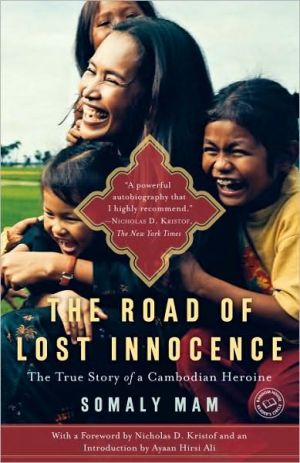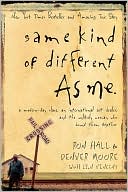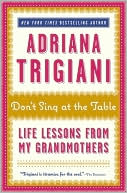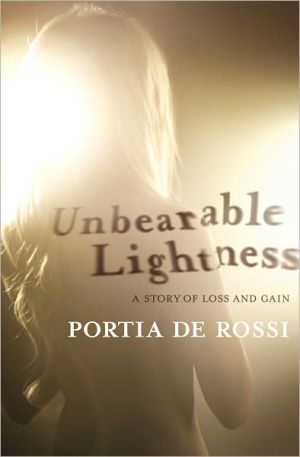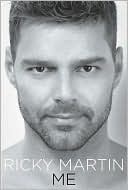The Road of Lost Innocence: The True Story of a Cambodian Heroine
A riveting and beautiful memoir of tragedy and hope–by a woman named to Time magazine’s list of the 100 most influential people in the world\ Born in a village deep in the Cambodian forest, Somaly Mam was sold into sexual slavery by her grandfather when she was twelve years old. For the next decade she was shuttled through the brothels that make up the sprawling sex trade of Southeast Asia. She suffered unspeakable acts of brutality and witnessed horrors that would haunt her for the rest of...
Search in google:
Born in a village deep in the Cambodian forest, Somaly Mam was sold into sexual slavery by her grandfather when she was twelve years old. For the next decade she was shuttled through the brothels that make up the sprawling sex trade of Southeast Asia. Trapped in this dangerous and desperate world, she suffered the brutality and horrors of human trafficking — rape, torture, deprivation until she managed to escape with the help of a French aid worker. Emboldened by her newfound freedom, education, and security, Somaly blossomed but remained haunted by the girls in the brothels she left behind. Written in exquisite, spare, unflinching prose, The Road of Lost Innocence recounts the experiences of her early life and tells the story of her awakening as an activist and her harrowing and brave fight against the powerful and corrupt forces that steal the lives of these girls. She has orchestrated raids on brothels and rescued sex workers, some as young as five and six; she has built shelters, started schools, and founded an organization that has so far saved more than four thousand women and children in Cambodia, Thailand, Vietnam, and Laos. Her memoir will leave you awestruck by her tenacity and courage and will renew your faith in the power of an individual to bring about change. The Washington Post - Jane Ciabattari In The Road of Lost Innocence, [Mam] writes of corrupt government officials and police who allow the illegal businesses to thrive. Her account inspires outrage.
Chapter One\ The Forest\ My name is Somaly. At least that's the name I have now. Like everyone in Cambodia, I've had several. Names are the result of temporary choices. You change them the way you'd change lives. As a small child, I was called Ya, and sometimes just Non—"Little One." When I was taken away from the forest by the old man, I was called Aya, and once, at a border crossing, he told the guard my name was Viriya—I don't really know why. I got used to people calling me all sorts of names, mostly insults. Then, years later, a kind man who said he was my uncle gave me the name Somaly: "The Necklace of Flowers Lost in the Virgin Forest." I liked it; it seemed to fit the idea of who I felt I really was. When I finally had the choice, I decided to keep that name as my own.\ I will never know what my parents called me. But then I have nothing from them, no memories at all. My adoptive father once gave me this typically Khmer advice: "You shouldn't try to discover the past. You shouldn't hurt yourself." I suspect he knows what really happened, but he has never talked to me about it. The little I do know I've had to piece together with vague recollections and some help from history.\ I spent my earliest years in the rolling countryside of northeastern Cambodia, surrounded by savanna and forests, not far from the high plains of Vietnam. Even today, when I have the chance to go into the forest, I feel at home. I recognize smells. I recognize plants. I instinctively know what's good to eat and what's poisonous. I remember the waterfalls. The sound of them is still in my ears. We children would bathe naked under the cascading water and play at holding our breath. I remember the smell of the virgin forest. I have a buried memory of this place.\ The people of Bou Sra, the village where I was born, are Phnong. They are an old tribe of mountain people, quite unlike the Khmer who dominate the lowlands of Cambodia. I have inherited the typical Phnong dark skin from my mother. Cambodians see it as black and ugly. In Khmer, the word "Phnong" means "savage." Throughout Southeast Asia, people are very sensitive about skin color. The paler you are, the closer to "moon color," the more highly you are prized. A plump woman with white skin is the supreme object of beauty and desire. I was dark and thin and very unattractive.\ I was born sometime around 1970 or 1971, when the Troubles began in Cambodia. My parents left me with my maternal grandmother when I was still a small child. Perhaps they were seeking a better life, or perhaps they were forced to leave. Before I turned five, the country had been carpet-bombed by the Americans. Then it was seized by the murderous regime of Pol Pot's Khmer Rouge. The four years of Khmer Rouge rule, from 1975 to 1979, were responsible for the deaths of about one in five people in Cambodia through execution, starvation, or forced labor. In the storm of events, countless others were simply swept away from their villages and families without leaving a trace. People were displaced to work camps, where they toiled as slaves, or were forced to fight for the regime. There are many reasons why my parents might have left the forest.\ The story I like to tell myself is that my parents and grandmother always had my best interests at heart. Among the Phnong, the mother's lineage determines ethnicity. So despite my father being Khmer, when my parents left, my place was with the Phnong in Mondulkiri Province. Not long thereafter my grandmother would also disappear, much too soon for me to have any lasting memory of her. Mountain people up and leave for any old reason, as soon as anything displeases them. No one expected an explanation, especially not during those troubled years. So when my grandmother left the forest, no one knew where she went. I don't think I was abandoned—she probably thought I'd be safest in the village. There was no way she could have known that the forest would not be my home for long.\ Our village was nothing more than a dozen round huts clustered in a forest clearing. The huts were made of plaited bamboo, their straw roofs low to the ground. Most families shared a single large hut with no partition between the communal sleeping platform and the cooking area. Other families kept themselves separate. With no parents or other family in the village, I would sleep on my own in a hammock. I lived like a little savage. I slept here or there, and ate where I could. I was at home everywhere and nowhere. I don't remember any other children who slept alone among the trees, as I did. Perhaps I wasn't taken in by anyone because I was of mixed race—part Phnong and part Khmer. Or perhaps I just made a decision to be by myself. Being an orphan in Cambodia is no rare condition. It is frighteningly ordinary.\ I wasn't generally unhappy, but I remember feeling cold all the time. On particularly bitter or rainy nights, a kind man, Taman, would make space for me in his home. He was a Cham, a Muslim Khmer, but his wife was Phnong. I can't remember her name, but I thought she was beautiful with her long black hair tied behind her head with a bamboo stick, her high cheekbones, and a necklace made of shiny black wood and animal teeth. She was nice to me. Sometimes she would try to wash my long hair, rubbing the ash of a special herb into it to clean it, and then oiling it with pig fat and combing it with her fingers while she sang. She wore an intricately woven black and red cloth around her waist. Some women would leave their breasts bare, but Taman's wife covered hers.\ Taman, like the other men, wore a loincloth that left his buttocks bare. The men wore strings of beads and bows strapped to their backs and had thick cylinders of wood pierced through their earlobes.\ We children would be naked most of the time. We would play or help make clothes together out of thick, flat leaves wrapped with vines. Taman's wife would weave for hours on end, sitting on the floor with her legs stretched out in front of her and the bamboo loom tied to her feet.\ Her teeth were filed into sharp points. Phnong girls file and blacken their teeth when they become women, but I left the village long before the time for filing teeth.\ I was always looking for a mother so that I could be held in her arms, kissed, and stroked, like Taman's wife held her children. I was very unhappy not to have a mother like everyone else. My only confidants were the trees. I talked to them and told them about my sorrow. They listened, understood, and made discreet signs in my direction. They were my only true friends, along with the moon. When things got unbearable, I confessed my secrets to the waterfalls, because the water couldn't reverse its flow and betray me. Even today, I sometimes talk to trees. Other than that, I almost never spoke as a child. There wouldn't have been much point—nobody would have listened.\ I found my own food. I would roam the forest and eat what I could find: fruit, wild vegetables, and honey. There were also plenty of insects, such as grasshoppers and ants, to eat. I particularly loved the ants. I still know where to look to find fruits and berries, and I still know that there are bees you can follow to find their honey. And I still know that you should look down because there are mushrooms on the ground, but also snakes.\ If I caught an animal I would take it to Taman's wife to cook. She cooked meat under a layer of ash, because ash is naturally salty. Sometimes she dried the little pieces of meat in buffalo dung, mixed them with bitter herbs and rice, and cooked them over the fire. The first time I returned to the village as an adult, almost twenty-five years later, I discovered that dish again and I ate so much I made myself sick.\ The mountain land in the Mondulkiri region was ill suited for growing rice, so the entire village had to work together to grow our food. The forest had to be burned to create rice paddies. Every few years, the forest had to be burned so we could grow rice, and we would be forced to go farther and farther afield in search of good soil. The distances were vast, especially for my little legs, and sometimes we'd have to walk for several days. We had no carts or work animals like the Khmer had in their flooded rice paddies. Everything we brought back to the village we had to carry ourselves.\ When the rice was harvested, several villages would gather around a fire to celebrate. We would sacrifice a buffalo to the spirits who lived in the forest and dance to the beat of the metal gongs. There'd be endless banqueting and lots of rice wine. I remember the earthenware jars being enormous, almost as tall as I was. We'd drink it straight from the jar, one by one, sipping through a bamboo straw. Even children were allowed to join in. I remember a great deal of kindness toward the children on these occasions. The Phnong people are good to children—not like the Khmer.\ Our hills were so remote that probably no doctor or nurse had ever set foot in them. There were certainly no schools. I never saw a Buddhist or Christian preacher. And although my childhood coincided with the Khmer Rouge regime, I also have no recollection of ever seeing soldiers.\ The Khmer Rouge had decreed that mountain people like the Phnong were "core people." We were examples for others to follow, because we had no contact with Western habits and lived collectively. Our forest and hills protected us from the suffering that engulfed the rest of Cambodia while I was a small child.\ Pol Pot had abolished money throughout the entire country of Cambodia, along with school diplomas, motor vehicles, eyeglasses, books, and any other sign of modern life. But I don't think that's why we had no currency. The Phnong never needed money. If the grown-ups wanted something we couldn't make or grow or hunt, they traded for it. If we wanted a cabbage, we went to ask a neighbor who had planted some. He would give us cabbage without asking for anything in return. Now it's different: the people from Phnom Penh arrive on weekends or during the holidays in their big 4_4s with their pockets full of bills.\ One day when I was about nine or ten, Taman called me into his hut and introduced me to a stranger. This man, like Taman, was a Cham Muslim. He was very tall and strongly built, with a thin nose like Taman and pale skin. I suppose he might have been about fifty-five, which is very old in Cambodia. Taman told me that this man was from the same place as my father. He used the word "grandfather" to refer to him, as all Cambodians do to show respect to the elderly. He told me that if I went with this grandfather, he would take me to my father's province and I would find my family.\ Perhaps Taman really believed that this grandfather would take care of me. Perhaps he truly thought this old Cham man would help me find my father's relatives. Perhaps he was convinced that I would be better off living in the lowlands, with an adult to look after me. Or perhaps he sold me to this man, knowing full well that, at best, I would become his indentured servant.\ I have tried many times to find Taman, to understand his reasoning, but I've since learned it's never possible to know what really motivates people.\ At first I really liked this grandfather and was happy to leave with him. In my short life, not many people had offered to look after me. I thought this man was my real grandfather, someone who would adopt and love me. I thought he knew where my parents were. I put together a bundle with a tunic that Taman's wife had made for me, along with a wooden necklace and a short black and red cloth with green embroidery.\ We began walking. We walked for a long time, along paths that took us farther and farther from the places I knew. He wasn't talkative, but neither was I. He spoke very little Phnong, and we were forced to communicate through rudimentary gestures.\ We came to a place where people were swarming around a giant logging truck. It was the largest, most frightening thing I had ever seen. There was no way I was going to climb on the logs like everyone else—the truck terrified me. I had never even seen a bicycle before, let alone a motorized vehicle.\ I backed away, but Grandfather glared at me and raised his hand menacingly. I didn't understand this gesture—I had never been hit—but I saw that his face had changed, that it was rough and angry, and it frightened me even more than the truck did. Then his hand struck me with a hard blow that knocked me to the ground. With my cheek bleeding, he pulled me up and onto the truck.\ I knew then that I had made the wrong choice, that this bad man was not my grandfather and would never love me. But it was too late to go back.\ \ Chapter Two\ The Village\ When the logging truck dropped us off, we moved onto some kind of military truck that was carrying soldiers. After that, sometimes we rode in horse-drawn carts. There were people everywhere. A momentous change had dragged practically everyone in Cambodia back onto the road. A year or so earlier, in 1979, after four years of Khmer Rouge border attacks, the Communist government of Vietnam had invaded Cambodia. After the Vietnamese defeated the Khmer Rouge, they set up a new government, and starved, terrified people from every corner of the country began moving back to their home villages. When my journey took place, the country was still teeming with movement.\ I knew none of this at the time, of course, but I was mesmerized by the crowds. The roads. The motorcycles. All the noise. The people looked beautiful, their skin so pale and their clothes exquisite. There were markets, with forks, bottles, string, shoes, matches, cigarettes, medicine, cosmetics, radios, and guns—all things I had never seen. There was so much metal, and so much color.\ We were traveling southeast, across the border into Vietnam, though the concept of "Vietnam"—or even "Cambodia"—meant nothing at all to me then. Grandfather was delivering a load of sandalwood from the forest to a trader in Da Lat, in the high plains of southern Vietnam, and I helped him carry it. After Da Lat we traveled south, toward Saigon, and then began circling back.
1 The Forest 12 The Village 93 "This Is Your Husband" 304 Aunty Nop 415 Aunty Peuve 556 Foreigners 657 The French Embassy 818 France 959 Kratie 10810 New Beginnings 12011 Guardian Angels 13212 The Prince of Asturias and the Village of Thlok Chhrov 14213 Afesip 15514 The Victims 16615 Conclusion 183Acknowledgments 191Appendix 195
\ Jane CiabattariIn The Road of Lost Innocence, [Mam] writes of corrupt government officials and police who allow the illegal businesses to thrive. Her account inspires outrage.\ —The Washington Post\ \ \ \ \ Publishers WeeklyThe horror and violence perpetrated on young girls to feed the sex trade industry in southeast Asia is personalized in this graphic story. Of "mixed race," Khmer and Phnong, Mam is living on her own in the forest in northern Cambodia around 1980 when a 55-year-old stranger claims he will take her to her missing family. "Grandfather" beats and abuses the nine-year-old Mam and sells her virginity to a Chinese merchant to cover a gambling debt. She is subsequently sold into a brothel in Phnom Penh, and the daily suffering and humiliation she endures is almost impossible to imagine or absorb ("I was dead. I had no affection for anyone"). She recounts recalcitrant girls being tortured and killed, and police collusion and government involvement in the sex trade; she manages to break the cycle only when she discovers the advantages of ferengi(foreign) clients and eventually marries a Frenchman. She comes back to Cambodia from France, now unafraid, and with her husband, Pierre; sets up a charity, AFESIP, "action for women in distressing circumstances"; and fearlessly devotes herself to helping prostitutes and exploited children. The statistics are shocking: one in every 40 Cambodian girls (some as young as five) will be sold into sex slavery. Mam brings to the fore the AIDS crisis, the belief that sex with a virgin will cure the disease and the Khmer tradition of women's obedience and servitude. This moving, disturbing tale is not one of redemption but a cry for justice and support for women's plight everywhere. (Sept.)\ Copyright © Reed Business Information, a division of Reed Elsevier Inc. All rights reserved.\ \ \ Kirkus ReviewsCandid memoir of a woman trapped in the sex-slave trade, who is now an activist against it. "You shouldn't try and discover the past," Mam recalls her adoptive father telling her. "You shouldn't hurt yourself." Born in 1970 or 1971 and torn from her ethnic Phnong family during Cambodia's genocidal civil war, Mam suffered as a child in a Khmer village whose people saw her as "fatherless, black, and ugly," possibly even a cannibal. Her pederast grandfather sold her virginity to a Chinese merchant to whom he owed money, a prize in a culture where raping a virgin was believed to cure AIDS. He then sold her to a soldier who "beat me often, sometimes with the butt of his rifle on my back and sometimes with his hands." From there it was a short path to what Mam calls "ordinary prostitution," working for a madam who was quick to hit and slow to feed. In time, after a series of indignities that she recounts in painful detail, Mam extricated herself to live with a French humanitarian-aid worker. Married, she moved with him to France, where she discovered that "French people could be racist, just like the Khmers." Burdened with an unpleasant mother-in-law, she welcomed the chance to return to Cambodia, working in a Doctors Without Borders clinic and turning her home into a kind of halfway house for abused, drug-addicted and ill prostitutes, most of whom were very young. Mam recounts her battles against government officials, pimps, brothel keepers and other foes in a campaign that brought death threats against her, but that slowly gathered force as it gained funding from UNICEF and several European governments. That campaign is ongoing, and Mam concludes that there's plenty left to do, since Cambodiais "in a state of chaos where the only rule is every man for himself."An urgent, though depressing, document, worthy of a place alongside Ishmael Beah's A Long Way Gone, Rigoberto Menchu's autobiography and other accounts of overcoming Third World hardship. Agent: Susanna Lea/Susanna Lea Associates\ \
